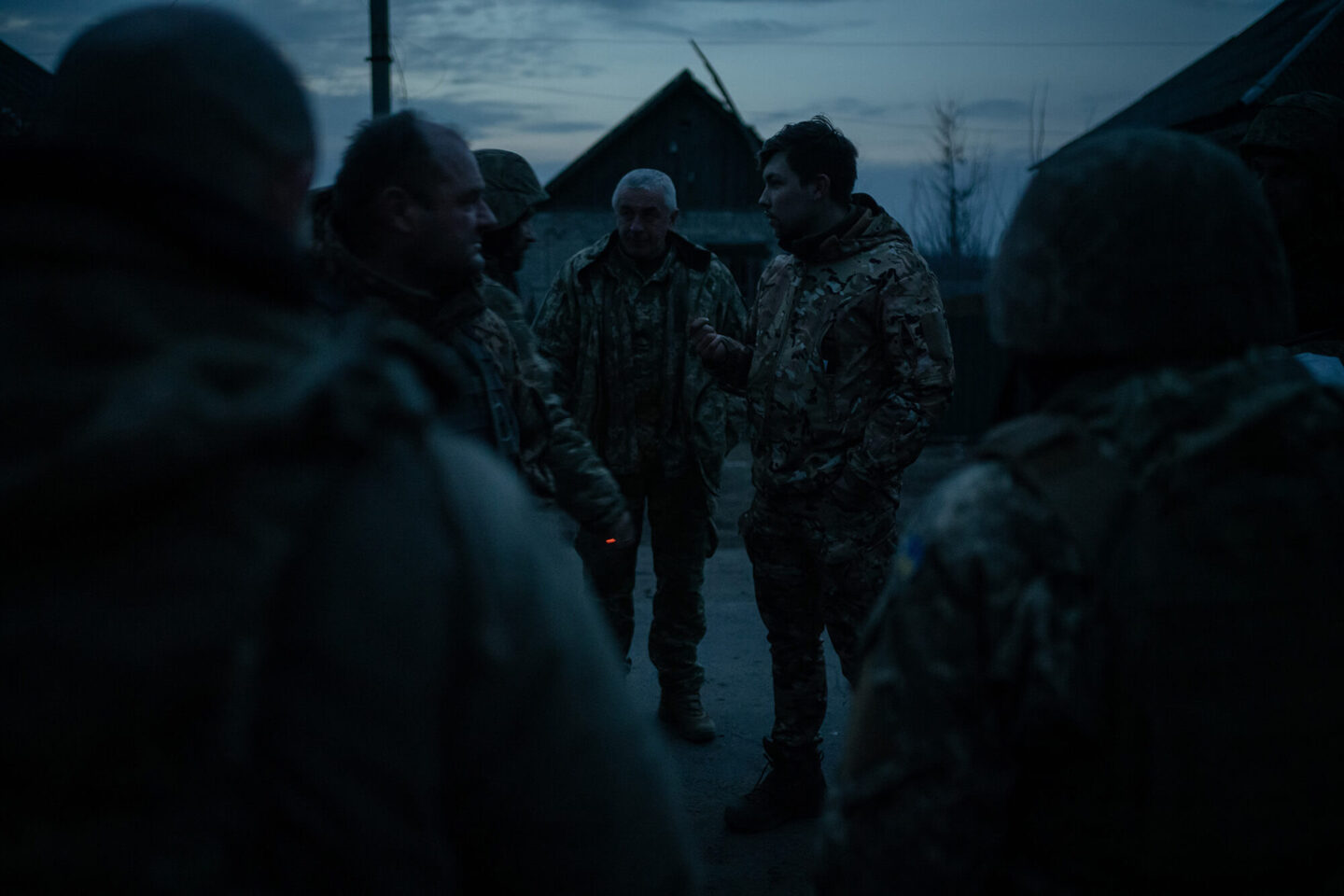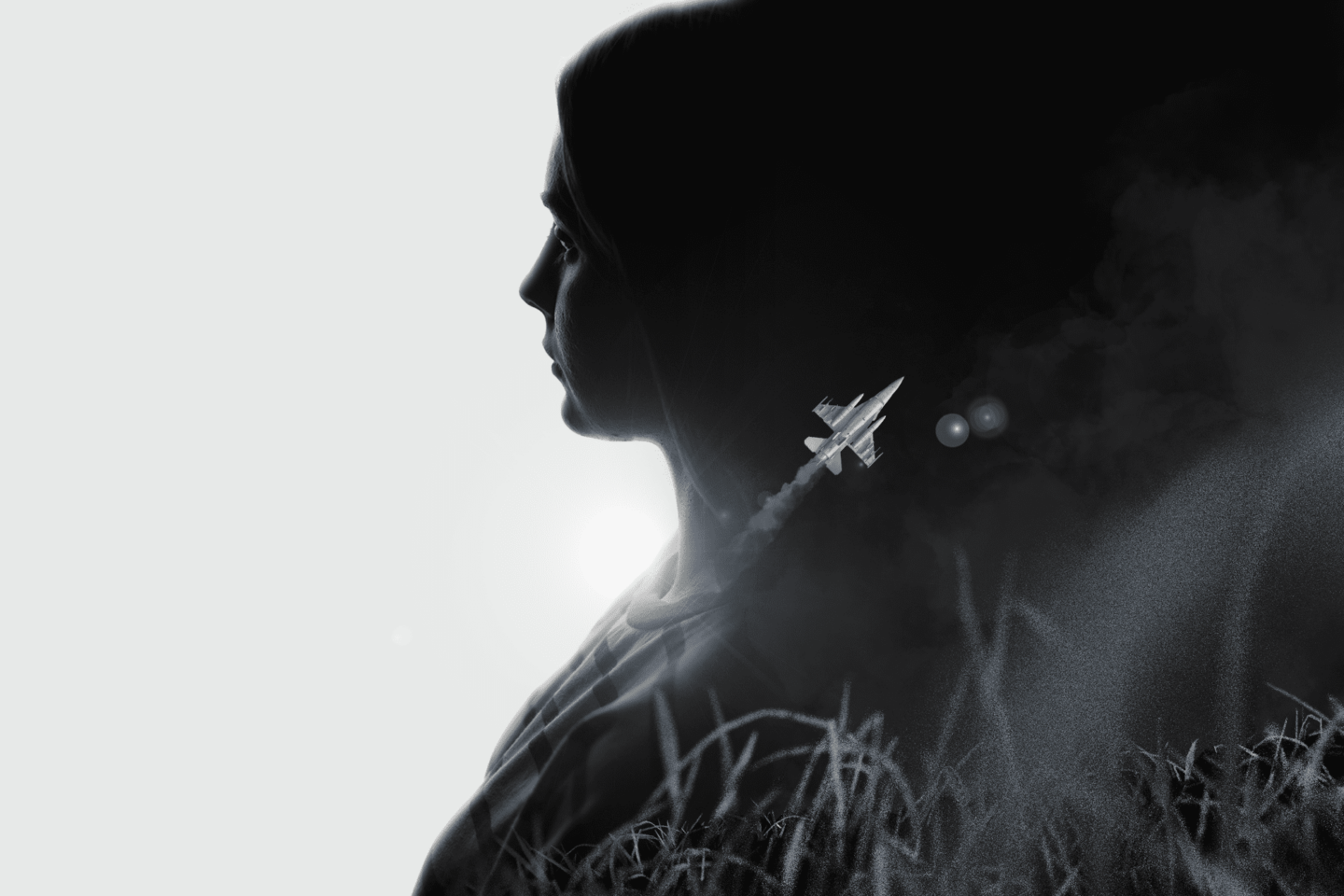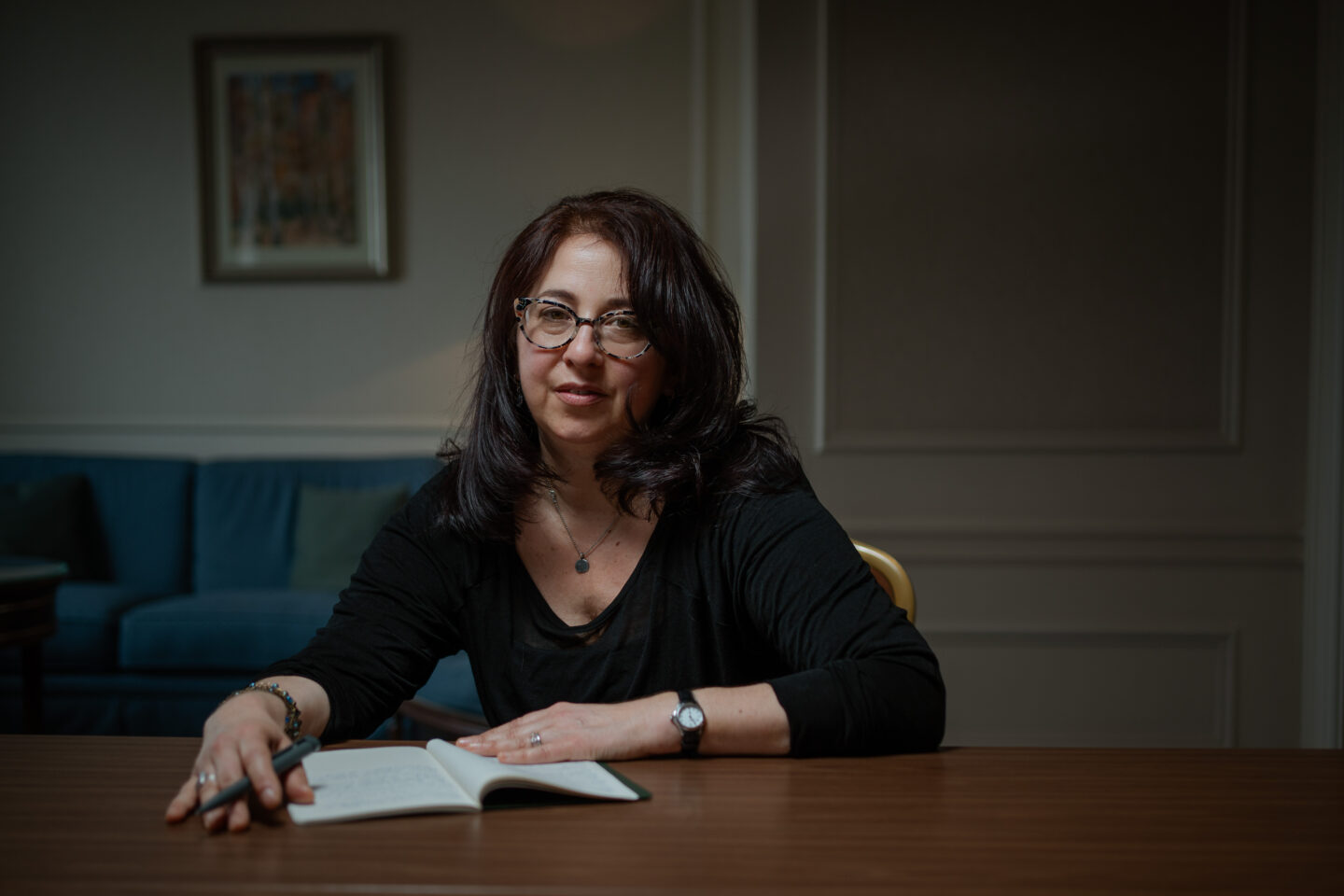Documentary photographer Sergiy Polezhaka has been capturing the war since 2014, but what still amazes him is how fiercely people cling to their frontline gardens, flowerbeds, and orchards. Along the line of fire, he meets people who water roses beneath the ruins of their homes, clear mines from their fields so they can graze cattle, and decorate garden rockeries with fragments of Russian shells.
They do this without waiting for a ceasefire: under fire, under occupation, in villages that have been wiped out. When they evacuate, they take bundles of seedlings with them, and for a long time, they lament that the climate in Poltava or Cherkasy is not the same as in their native Izyum or Donbas, as if they’ve moved thousands of kilometers away from home.
Sergiy’s “Naïve Gardens” project was born from his thoughts on how to explain to a foreigner what the land means to a Ukrainian, literally, the soil that grows apple trees and cucumbers.
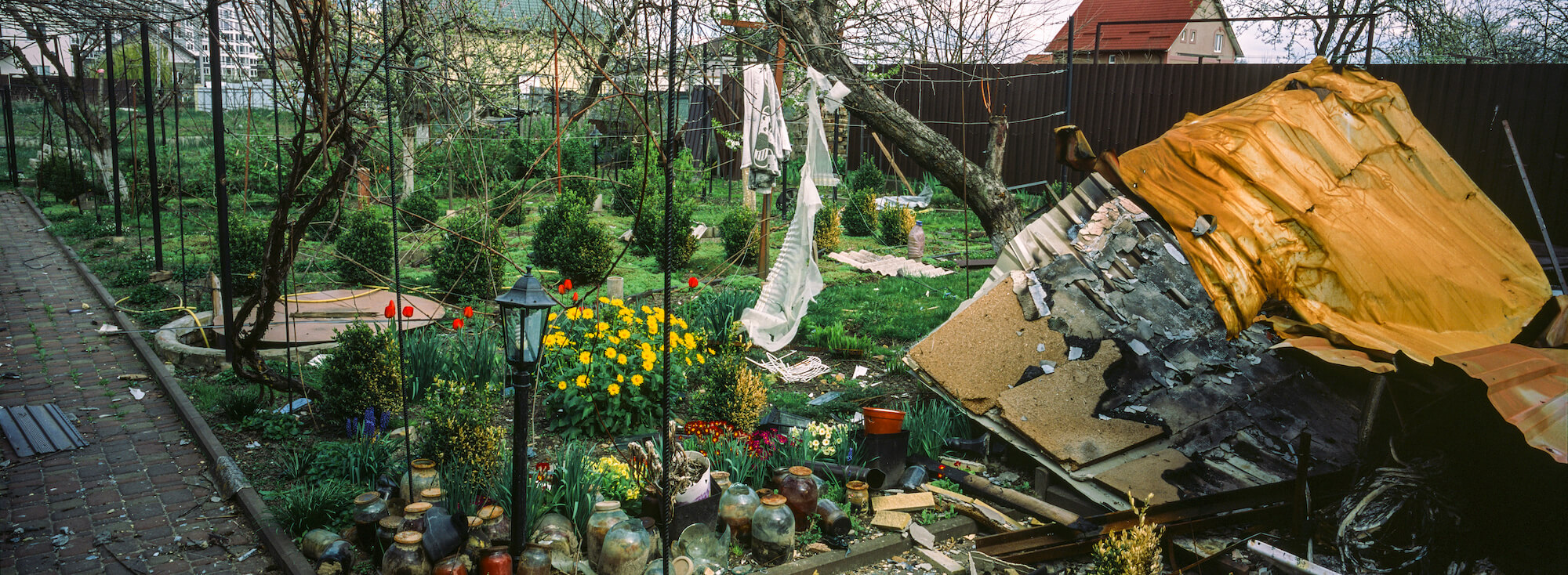
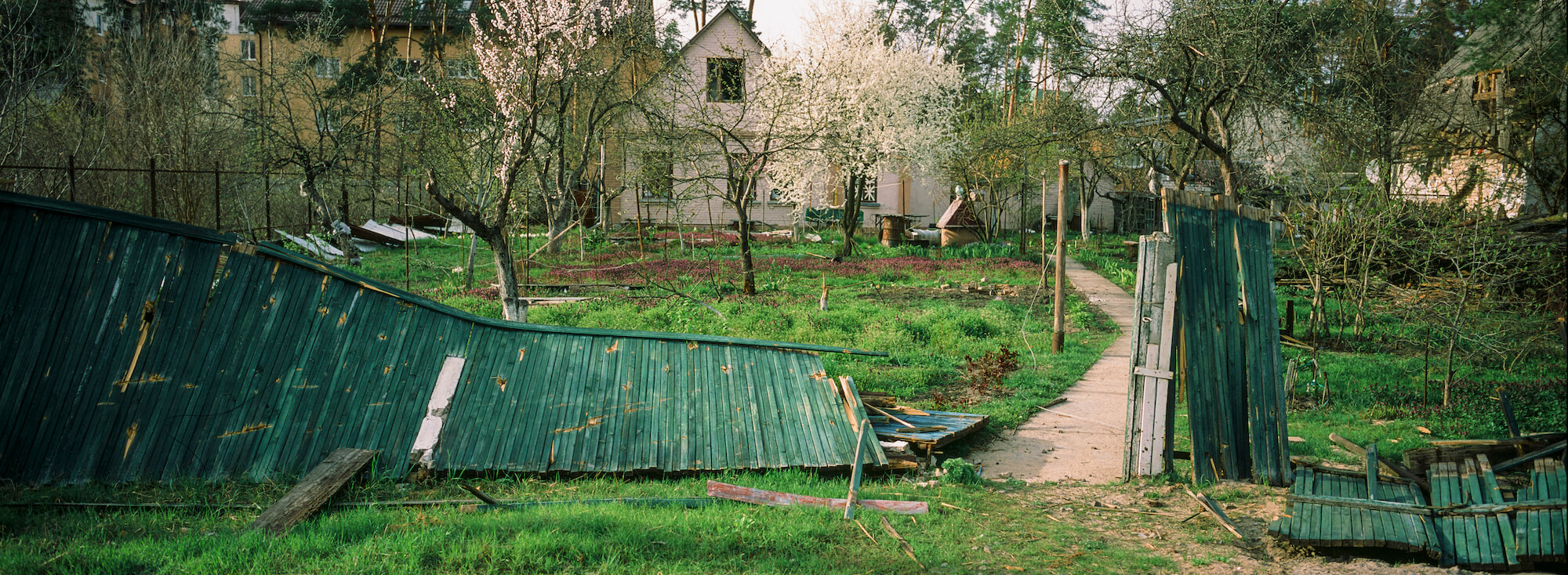
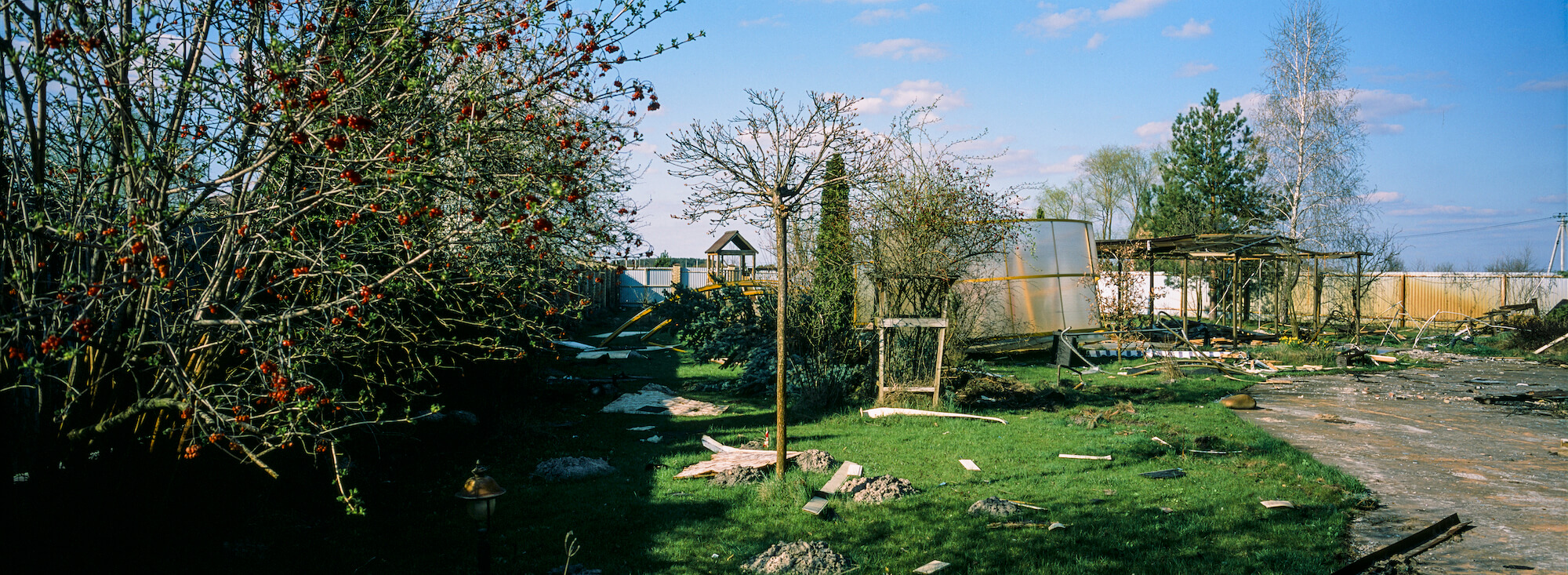
“I first started photographing gardens and how people interact with their space when I went to Irpin and Bucha on the anniversary of their liberation. An Italian journalist and I were traveling together, talking about the war, and he was genuinely surprised that people didn’t leave their homes. He said, ‘I wouldn’t fight; I’d go somewhere else, and no one could make me fight for territory.’
I wanted to explain our context through a paradox. On one hand, we have a lot of land, and it’s very fertile. But at the same time, we’ve constantly been threatened with losing it: first serfdom, then collectivization, and now this great war. You live and work hard on the land that feeds you, but there’s always a risk of losing it.”
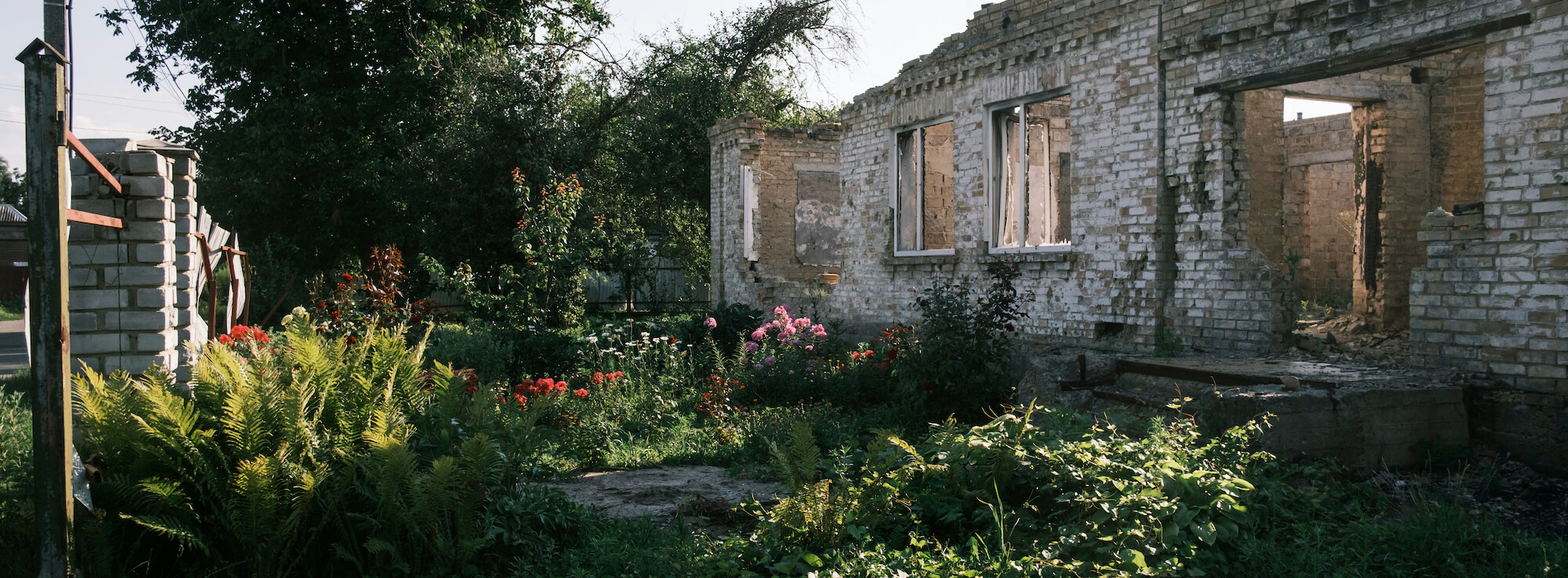
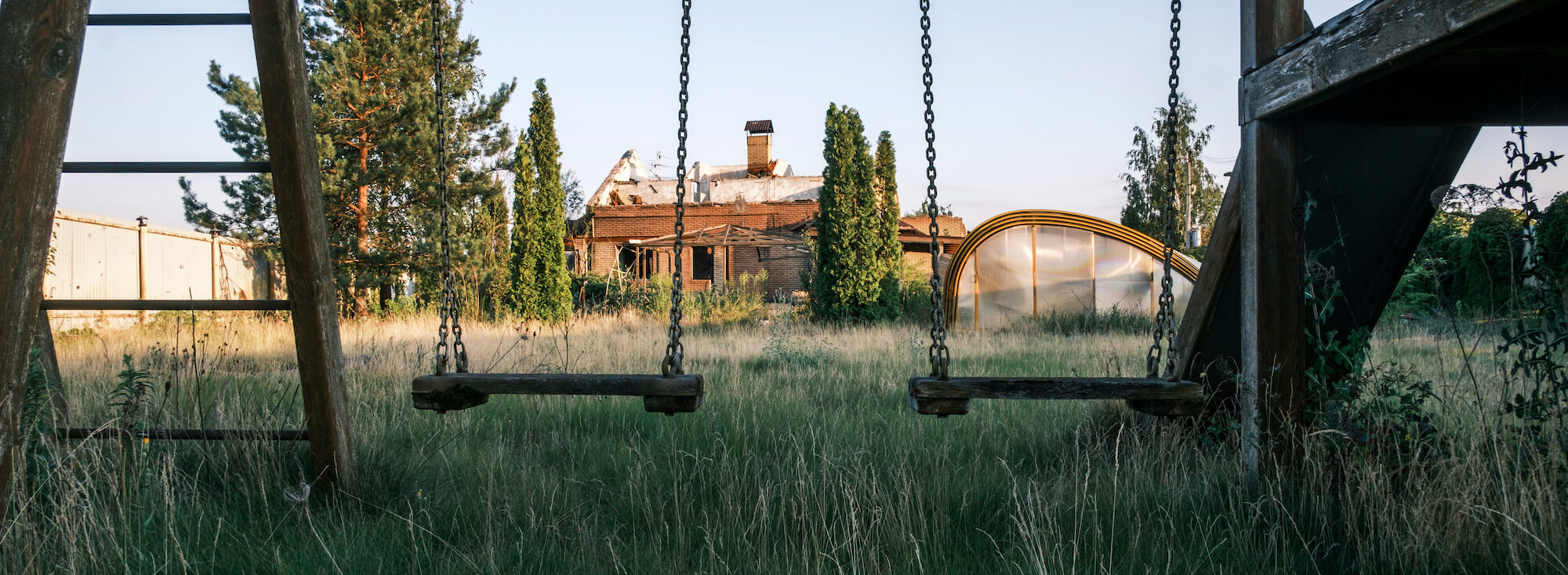
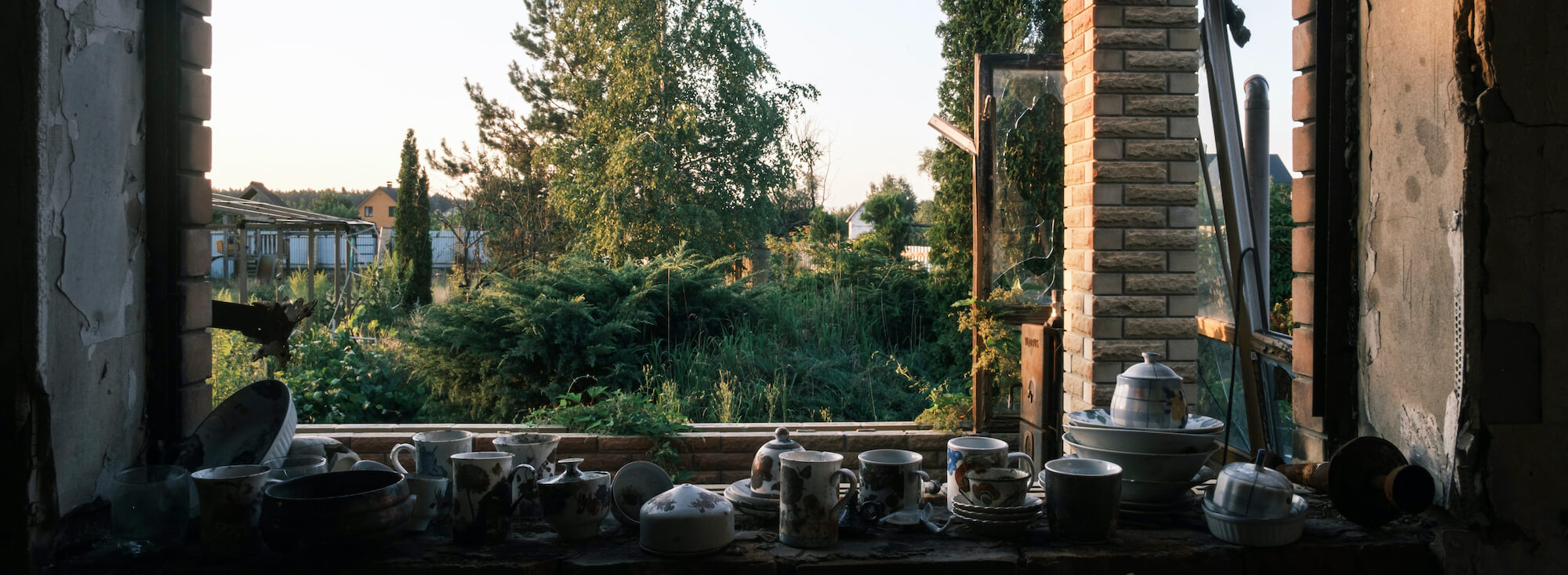
“I think this is why we’re so reluctant to become refugees, why we’re so determined to stay and defend what we have. People don’t want to lose what they’ve invested their lives in. They don’t want to wander around Europe or the rest of the world. Now that they finally own this land and work it to sustain themselves, a stubbornness takes hold. I saw it in a village in the Kyiv region, where a woman was carefully tending colorful flowerbeds against the backdrop of the charred ruins that were once her home. On the other side of the house was a plowed field, clearly waiting to be sown. This is also about naivety: people often keep doing what they’ve always done simply because they’re used to it, because they don’t know any other way to live.”
“In Northern Saltivka, the district of Kharkiv that has suffered the most from Russian shelling, I met a woman who returned home after months of evacuation. She laughed at herself, saying she must be out of her mind, because the first thing she did when she got back was run to the three apple trees she and her neighbors had planted by her driveway. She hugged them and cried.”
“So, this story isn’t just about gardens or even about Ukrainians. It’s about a sense of home. It’s about putting so much effort into something and seeing the fruits of your labor endure, they waited for you.”
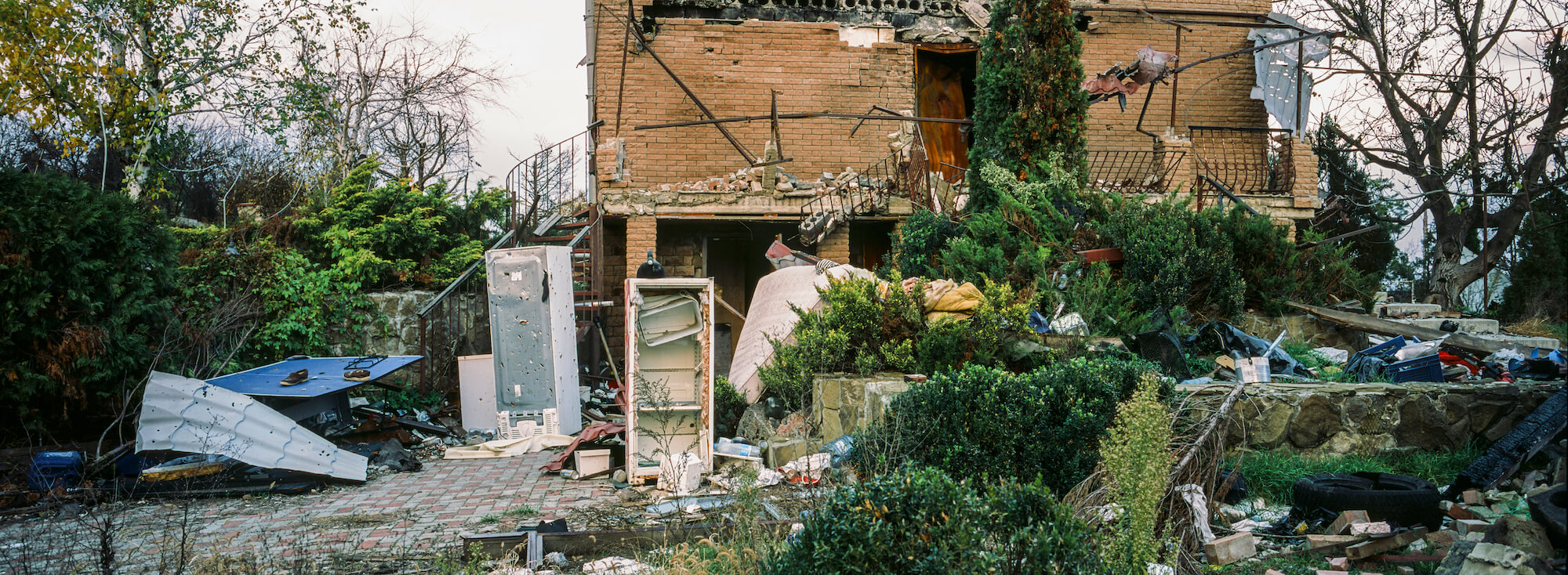
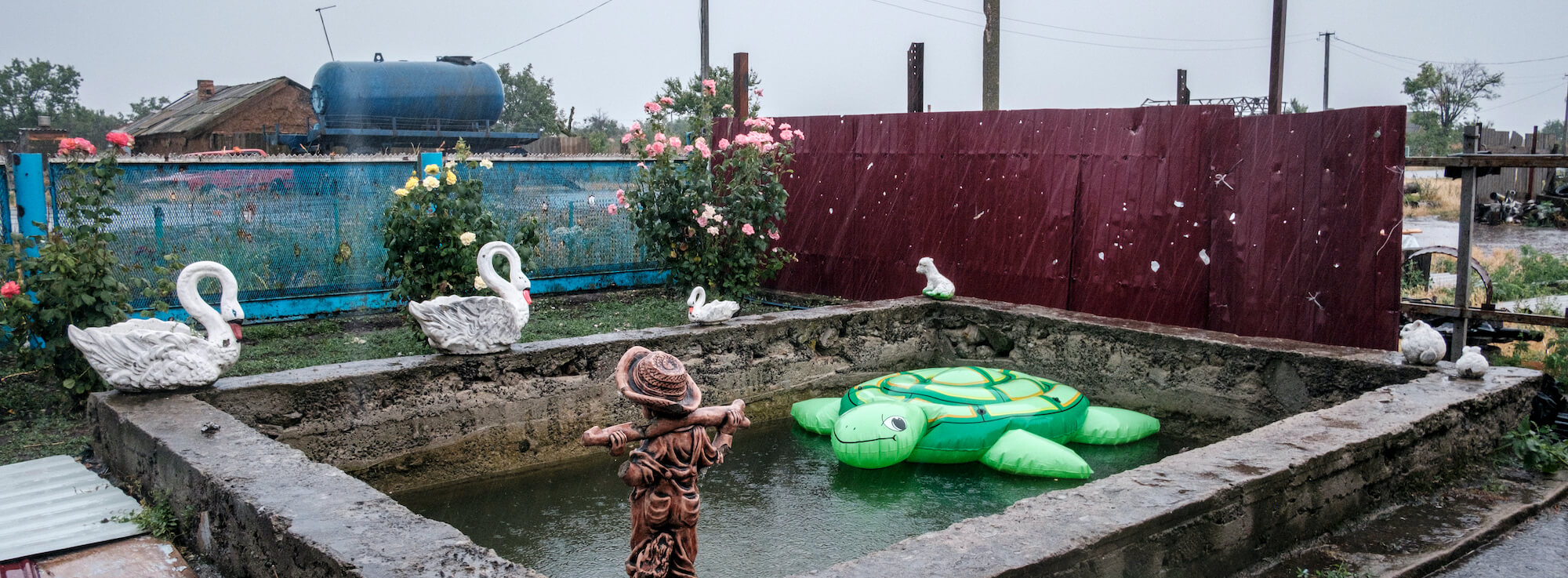
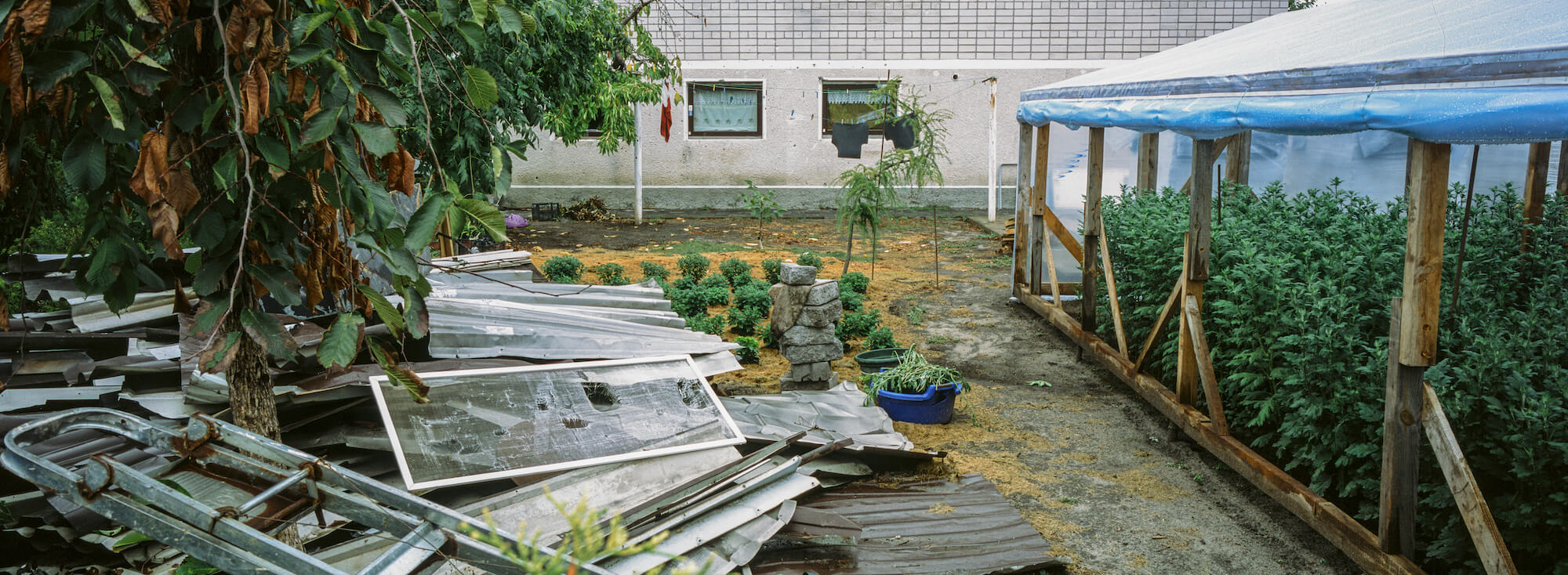
“I also wonder how the Ukrainian village will change after the war. Fence-sitting might no longer be relevant. I wonder if we’ll continue to fence ourselves off from our neighbors with high walls, considering how people helped each other after shelling, watched over abandoned houses to prevent looting. After all, it’s clear now that a fence won’t protect us from the real threat, a cruel, big neighbor from the north.
People paint flowers around shrapnel holes in their fences and decorate mines (hopefully defused) because they need to. It’s their way of saying ‘fuck you’ to the war. They tell it, ‘You have no power over me. Now, you’re just part of my decor.'”
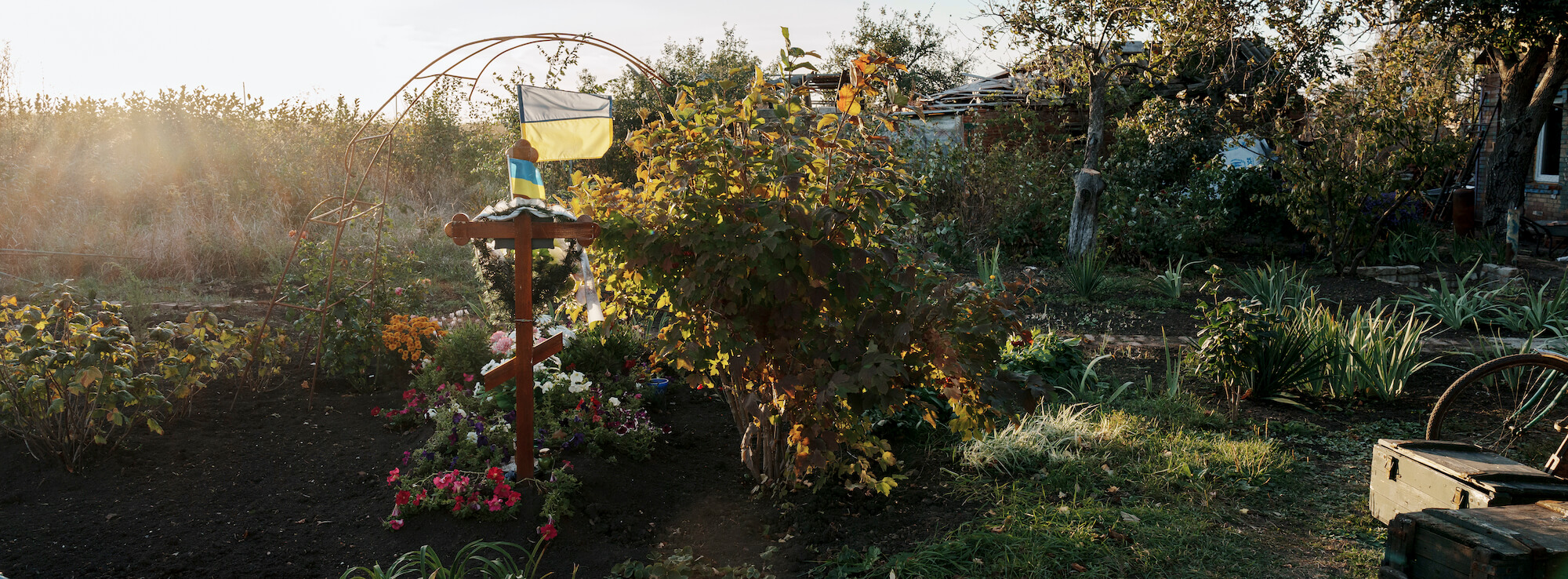
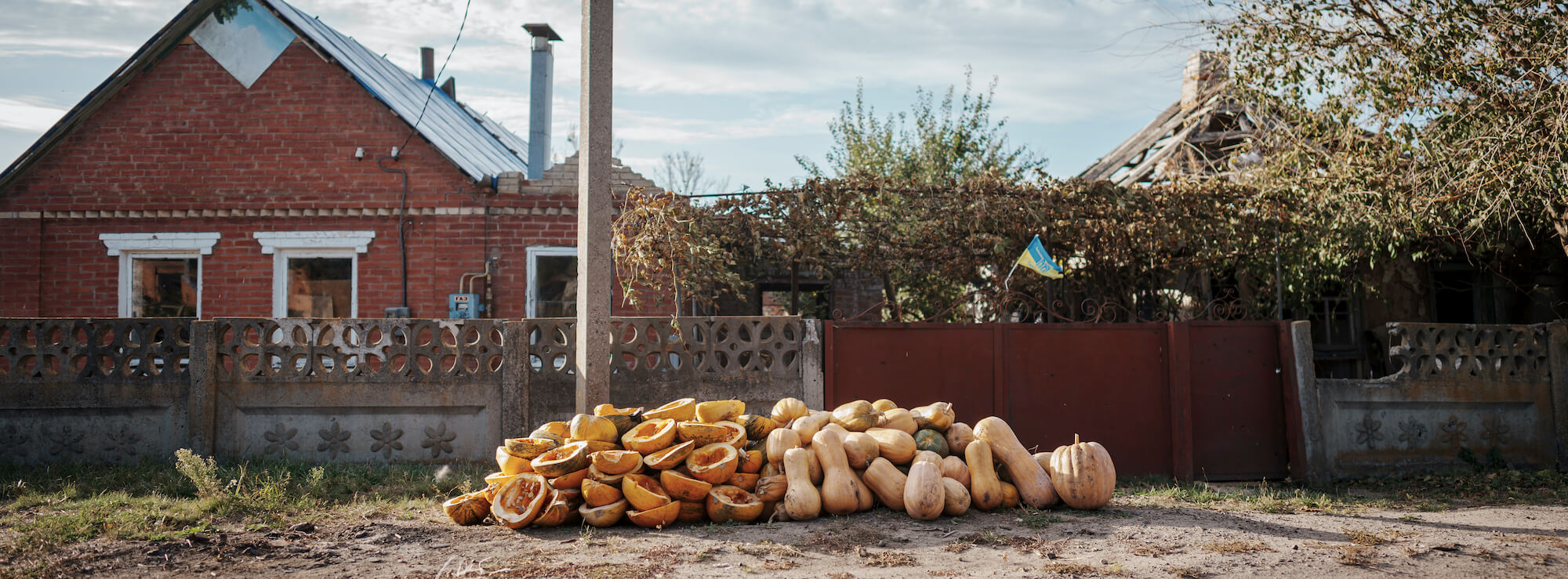
Translation — Marta Gosovska
§§§
[The translation of this publication was compiled with the support of the European Union and the International Renaissance Foundation within the framework “European Renaissance of Ukraine” project. Its content is the exclusive responsibility of the authors and does not necessarily reflect the views of the European Union and the International Renaissance Foundation]


